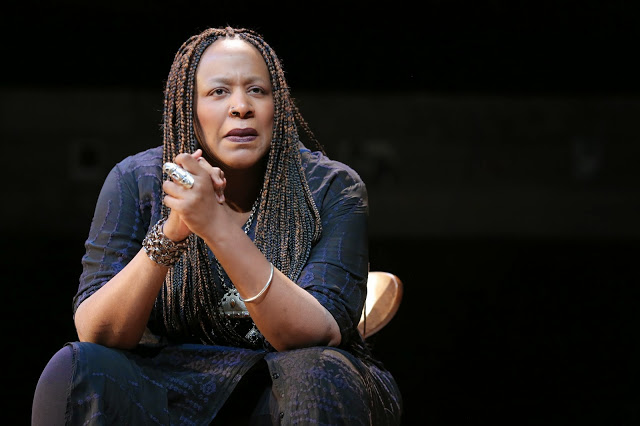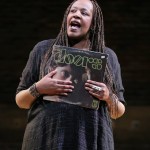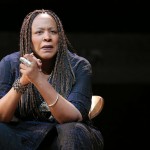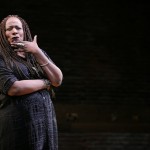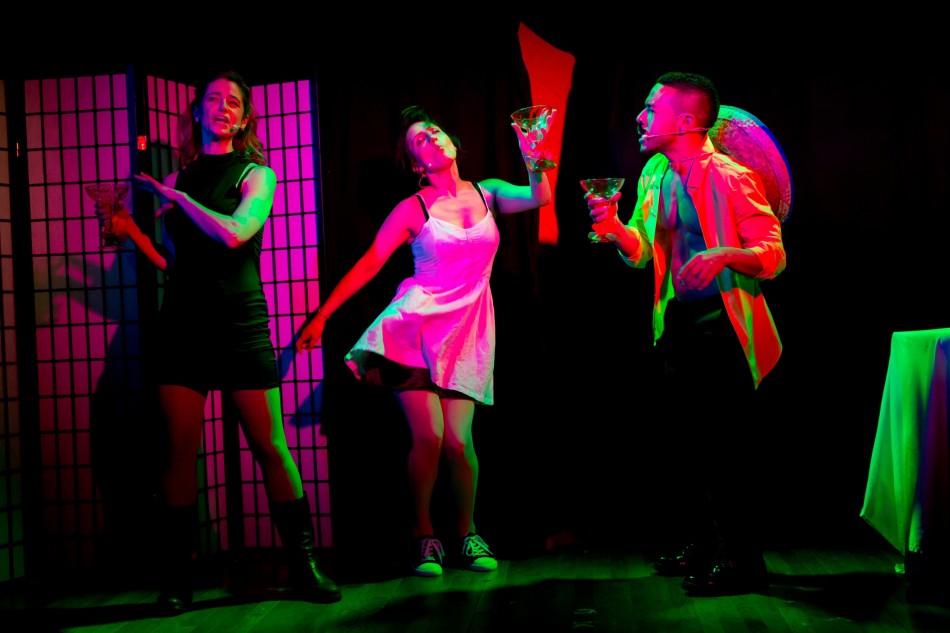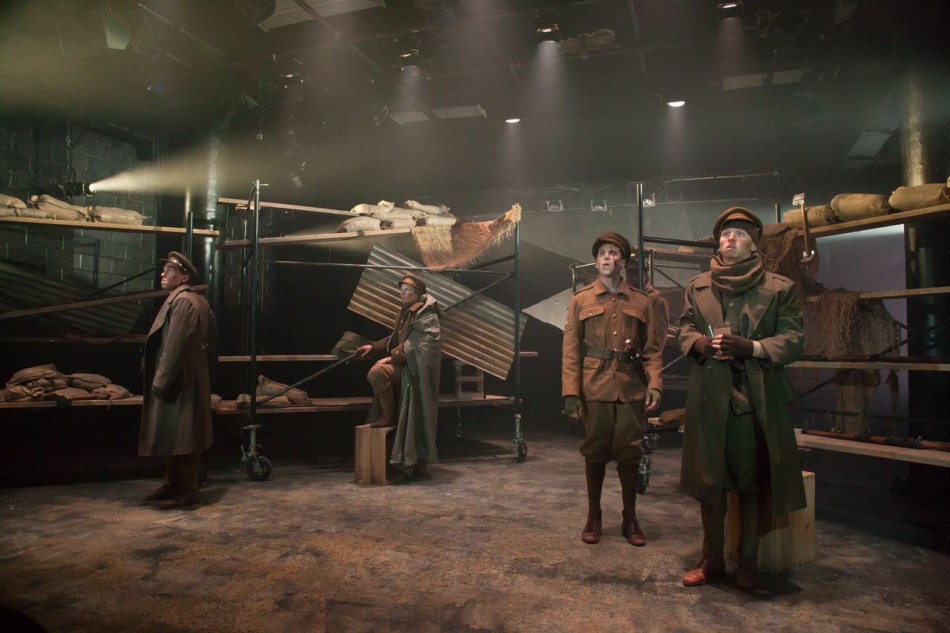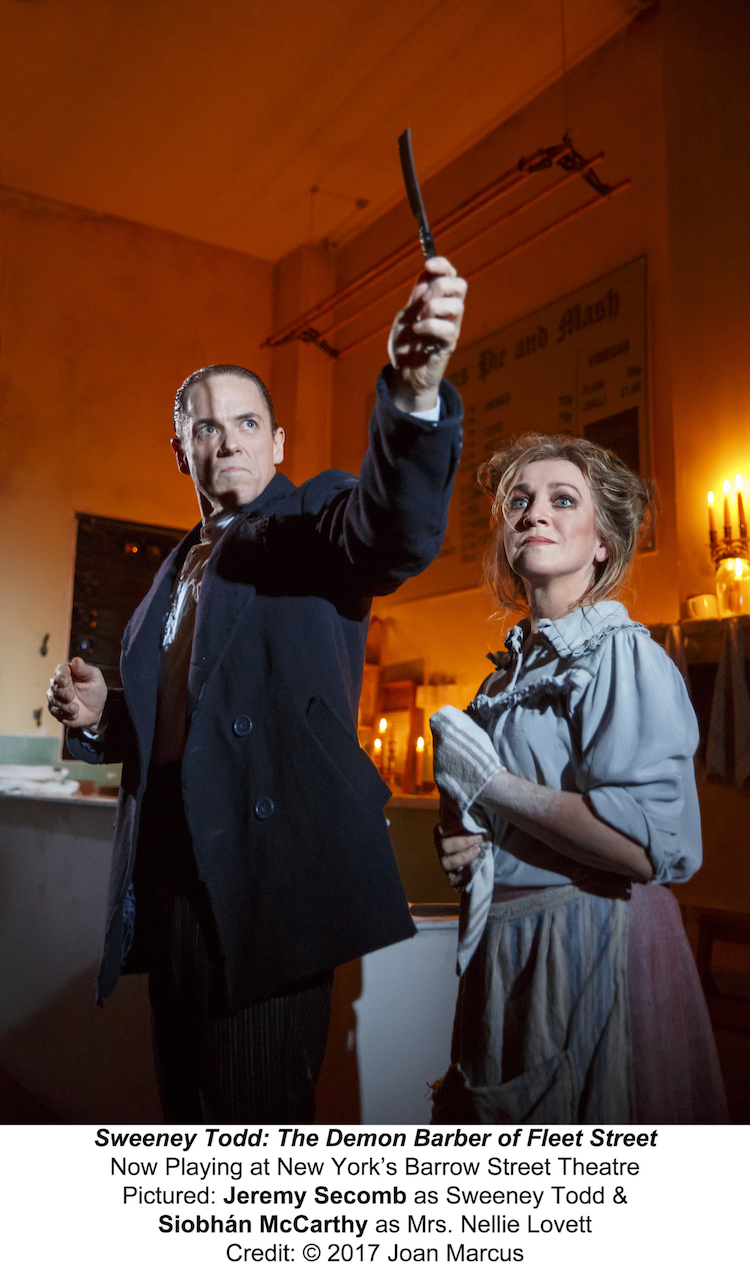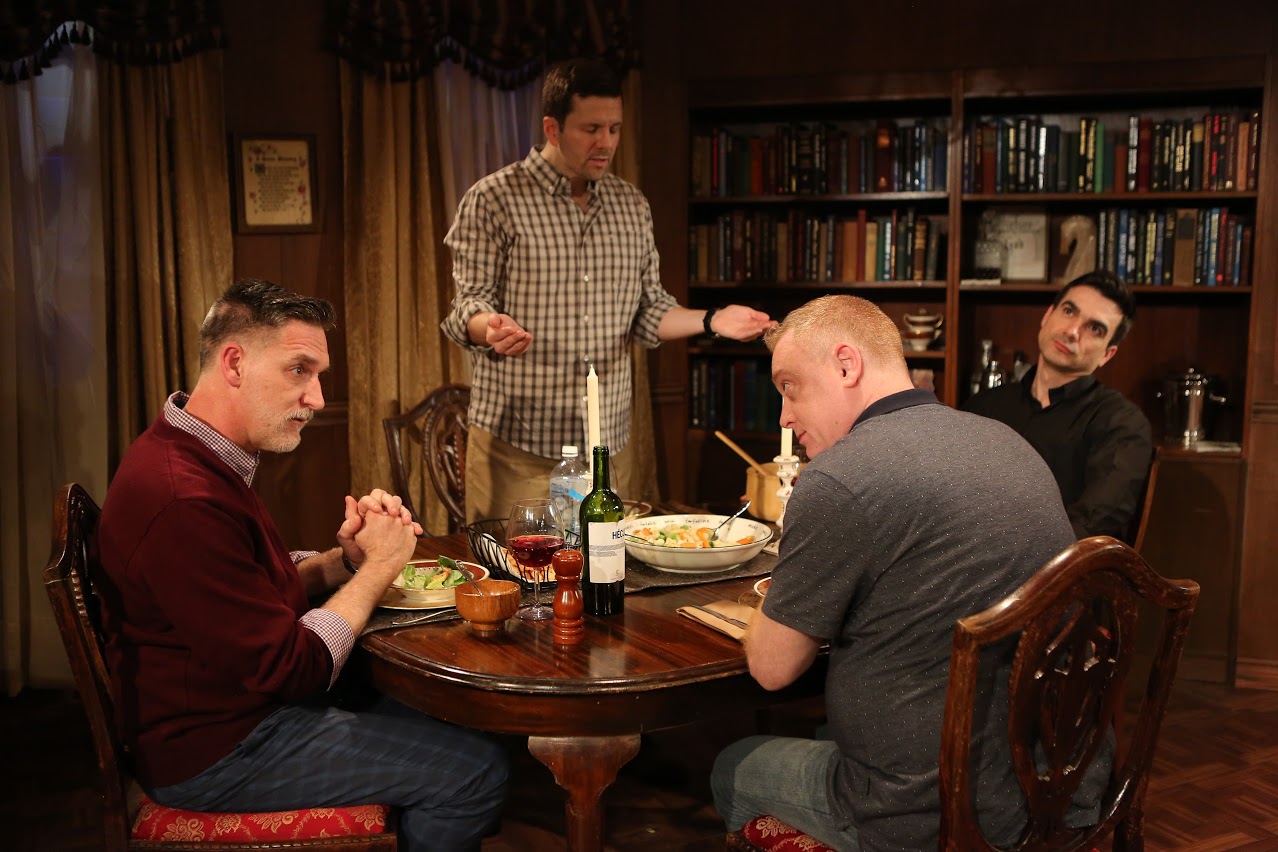Review by Samuel L. Leiter
The entire expanse of the spacious, proscenium-less stage area has been cleared at the NY Theatre Workshop to reveal the brick walls surrounding it, with only a narrow band of wood running horizontally across the walls and continuing through the auditorium. There are photographs related to Ms. Orlandersmith’s family decorating a portion, while the auditorium area contains small notes placed there by audience members responding to a program insert.
The only scenery (designed by Takeshi Kata) on the roomy stage, which seems rather extensive for a one-woman play, is a wooden platform with a table and a couple of chairs. Ms. Orlandersmith, a hefty, impressive-looking woman (born in 1959, she’ll tell us)—wearing a loose, black, caftan-like garment over black tights (costume by Kaye Voyce), her hair parted in the middle with numerous shoulder-length braids—manages to fill the space with the warmth of her presence and the strength of her performance. Neel Keller moves the actress through the space with discretion, and Mary Louise Geiger’s sensitive lighting does wonders to make the work visually stimulating.
Her memoir begins in Paris’ famed Pére Lachaise cemetery where so many famed artists are buried, and moves backward into her own life growing up in New York’s Harlem. Tying her Parisian and New York experiences together is her search for family; the dead writers and musicians she visits in Paris, the artistic parents she claims “helped us give birth to ourselves”; and there’s Beula, her late mother, who was both a powerful influence on and psychological obstacle to her development. Ms. Orlandersmith is a 2002 Pulitzer finalist and a program note reveals that “she blended fact and fiction” in the writing, which makes one hesitate about how much credence to give the details in her recounting.
Ms. Orlandersmith’s story, like those of most of our lives, is interesting, and has its dramatic highlights, including the highly graphic account of a rape she endured at 14, but there’s nothing truly extraordinary in it. Girl from Harlem overcomes drunken parent’s abuse and becomes moderately successful artist. What’s exceptional is the way she weaves her material into a compelling narrative, embracing the audience in her memories, particularly those picturing her enduring love-hate relationship with her abusive, chain-smoking, alcoholic mother, who gave weekly Saturday night drinking parties for her friends. She speaks directly to the audience in the first person, now and then briefly changing voices to suggest someone else. It’s a straightforward performance that, apart from the honesty with which she conveys her feelings, avoids the kind of tour de force versatility such works often count on.
In her teens, Ms. Orlandersmith finally found her pathway out of Harlem when she began hanging out in Greenwich Village, frequenting clubs like CBGB, becoming independent of her mother’s influence. Eventually, she achieved a life goal and went to Paris, a place her mother, who dreamed of going, never visited, and where she thinks her mother would have mocked her for being out of place.
The Pére Lachaise material concentrates mainly on honoring the memories of singer Jim Morrison of The Doors and ex-pat African-American novelist Richard Wright. Racial issues take a back seat to more universal ones; in fact, Ms. Orlandersmith notes the potent impact on her of two men of Irish ancestry, the playwright Eugene O’Neill and a cop who comforted her after her rape.
Following her mother’s death, Ms. Orlandersmith learns things about her she had never known, an experience many of us have shared. We all carry secrets that may or may never come to light.
Ms. Orlandersmith, whose play is essentially a struggle for reconciliation with her mother, manages to finally find it in Paris, and to realize, over Jim Morrison’s grave, that she and Beula will be there forever. Truth or fiction? Does it matter?
*Photos: Joan Marcus
New York Theatre Workshop 79 East 4th Street, NYC Through May 31


